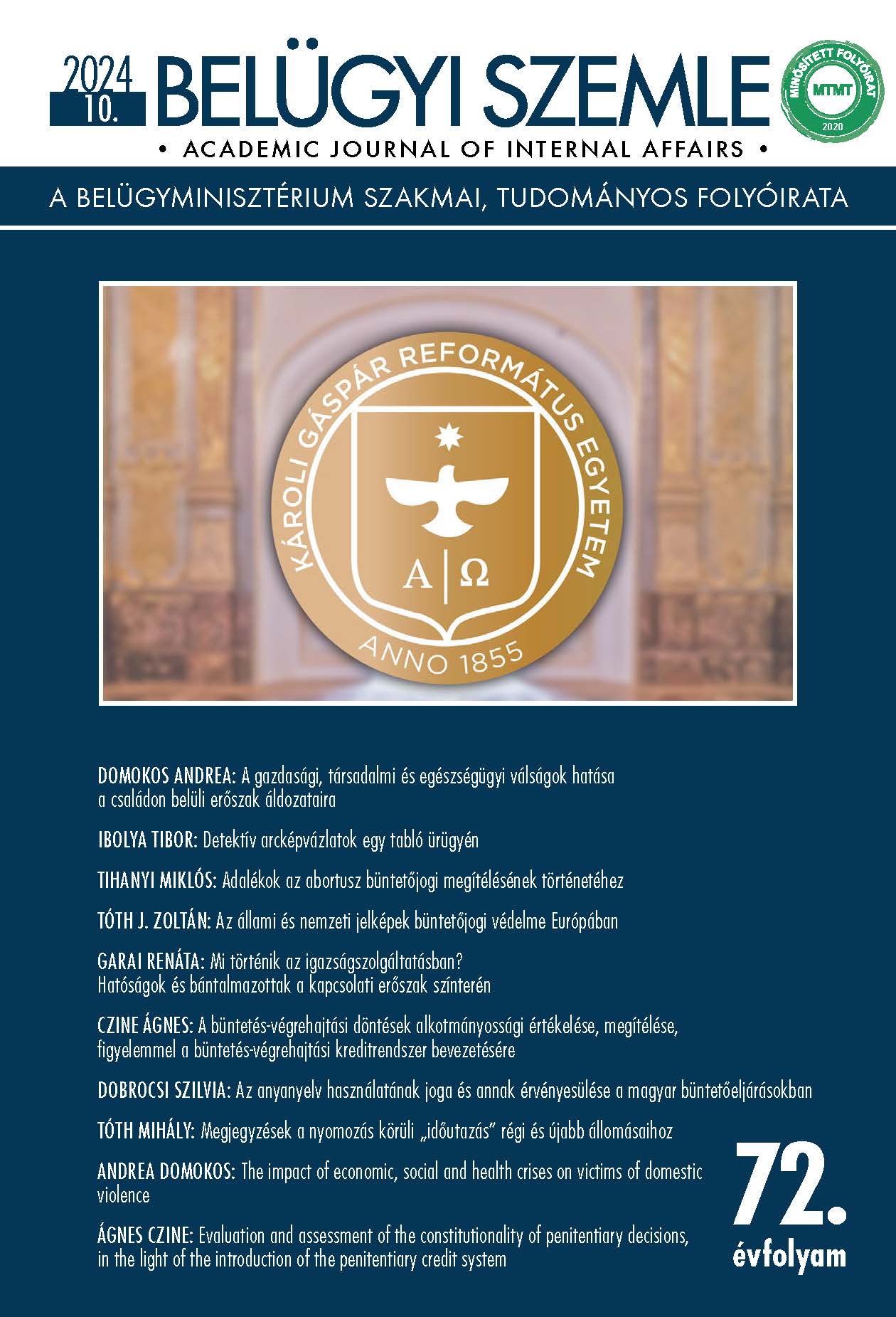Abstract
Aim: Criteria for the evaluation by the Constitutional Court of s on the execution of sentences.
Methodology: Descriptive, documentary and content analysis.
Findings: According to the first turn of Article 27 of the Law on the Constitutional Court, the decision on the merits, i.e. the decision on the substance of the charge and the decision on criminal responsibility, i.e. the decision on the guilt and the acquittal, can be the subject of a constitutional complaint. The final s – the order not to proceed to trial and the order terminating the proceedings – cannot be considered as s on the merits within the meaning of the Constitutional Court Act. However, these s can be examined in the context of a constitutional complaint, because they correspond to the second turn of Article 27 of the Constitutional Court Act, the other decision ending the court proceedings.
Value: So far, no academic article has been published that analyses which s of the prison judges can be challenged by a constitutional complaint following the latest amendments to Act CCXL of 2013 (Act XCVII of 2023).
References
Boda, Z. (2021). A büntetőeljárási és a büntetésvégrehajtási törvény szerinti kártalanítás összehasonlító elemzése. JURA, 27(3), 102–125.
Czine, Á. (2023). A strasbourgi emberi jogi bíróság esetjogának megjelenése a magyar Alkotmánybíróság határozataiban. Magyar Jog, 70(7-8), 409–414.
Czine, Á., Szabó, S. & Villányi, J. (2008). Strasbourgi ítéletek a magyar büntetőeljárásban. HVG ORAC.
Vókó, Gy. (2020). Nemzetközi elvárások hatása a büntetések végrehajtására – összehasonlító elemzés. Ügyészek Lapja, 27(4-5), 100–108.

This work is licensed under a Creative Commons Attribution-NonCommercial-NoDerivatives 4.0 International License.
Copyright (c) 2024 Academic Journal of Internal Affairs

